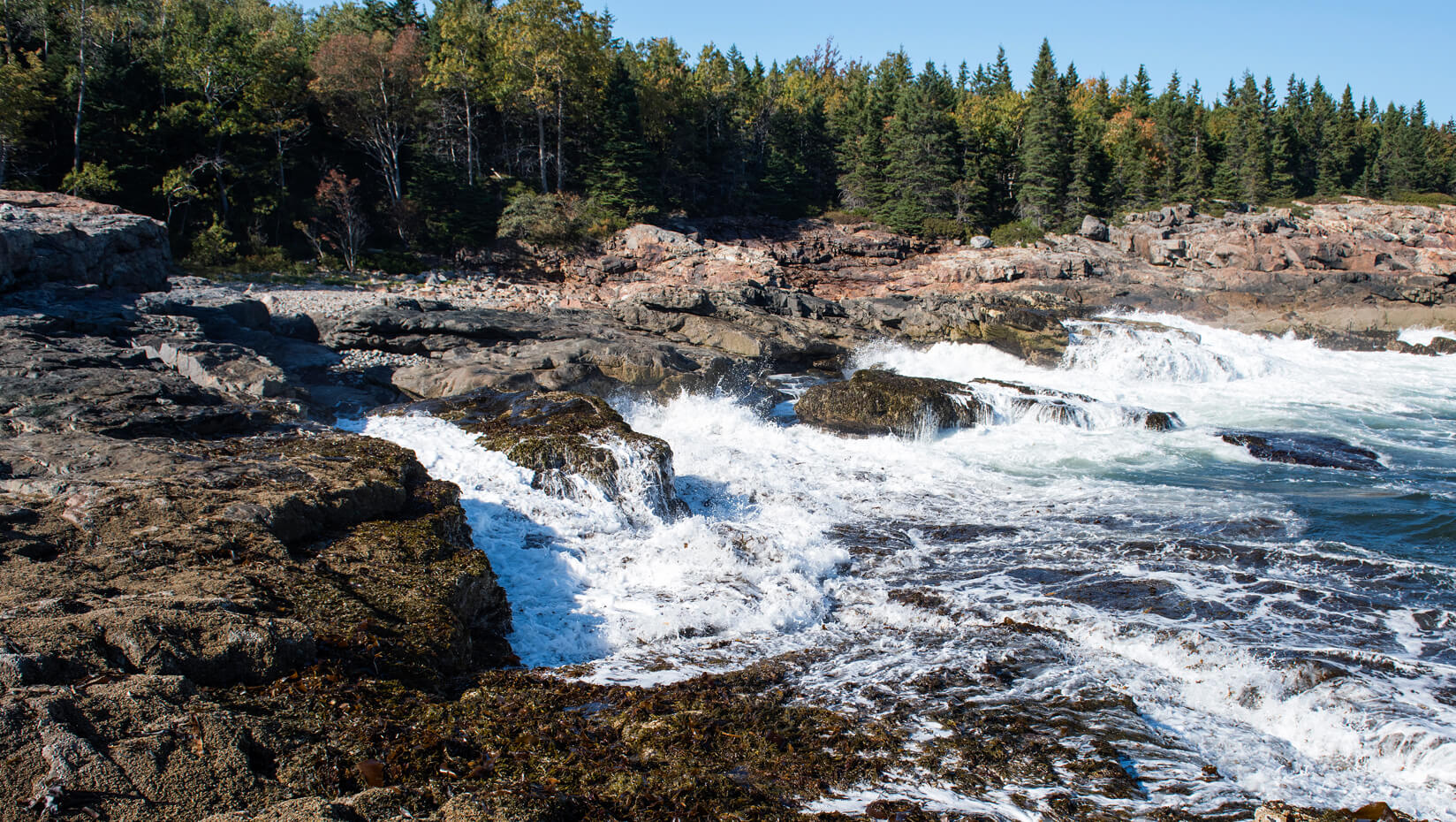
Maine Sea Grant awards funds for three UMaine research projects
The Maine Sea Grant College Program has awarded funds to University of Maine faculty for three new research projects representing more than $500,000 in investment from the National Oceanic and Atmospheric Administration and matching sources.
Hamish Greig, an assistant professor of stream ecology in the School of Biology and Ecology, plans to study the fate of Atlantic salmon, an endangered fish that is designated as one of eight “Species in the Spotlight” by the U.S. government.
Stephen Coghlan, an associate professor of freshwater fisheries at UMaine, and Joseph Zydlewski of the UMaine-United States Geological Survey (USGS) Cooperative Fish and Wildlife Research Unit are co-investigators on the two-year project that focuses on how habitat variation influences competitive interactions among salmon, native brook trout, and non-native smallmouth bass in Maine streams, which are getting warmer as a result of global climate change.
The team, which includes graduate student Nicole Ramberg-Phil, will integrate mesocosm experiments, modeling and field validation, working with colleagues in the Maine Department of Marine Resources and U.S. Fish and Wildlife Service.
Alice R. Kelley, Joseph Kelley, Daniel Belknap and Brian Robinson of UMaine’s School of Earth and Climate Sciences and the Climate Change Institute will investigate the development of a noninvasive, rapid method of assessing coastal archaeological sites.
Maine has about 2,000 such sites, some as old as 4,000 years, but they — and the cultural and scientific information they contain — are being lost due to erosion and flooding from rising sea levels. Given limited resources, archaeologists can only excavate about three sites per year.
Kelley and her team will work with Arthur Spiess of Maine Historic Preservation Commission to see if their findings can guide prioritization and decisions about which areas to excavate and/or protect.
Richard Wahle of the School of Marine Sciences will continue to study the larval or juvenile “settlement” phase of the American lobster. Wahle builds on his earlier Sea Grant research, which developed the American Lobster Settlement Index as a predictive tool for informing decisions about lobster fishery management.
The new project will examine factors behind the unprecedented surge in small lobsters in the historically cold eastern and deeper parts of the Gulf of Maine in the last decade, or juvenile lobsters settling in shallow nurseries and then moving into deeper water.
Wahle is working with both regulatory and industry partners, including fishermen Curtis Brown of Portland, Matt Parkhurst of Boothbay Harbor, and Norbert Lemieux of Cutler.
All three research projects will be presented at the Maine Sea Grant Biennial Research Symposium on April 14 at the University of Maine Buchanan Alumni House. More information about the research and symposium is on the Maine Sea Grant website.
Maine Sea Grant is a program of the state of Maine and the National Oceanic and Atmospheric Administration and one of 33 NOAA Sea Grant programs across the nation, which this year are celebrating 50 years of putting science to work for coastal communities.
Contact: Catherine Schmitt, 581.1434
